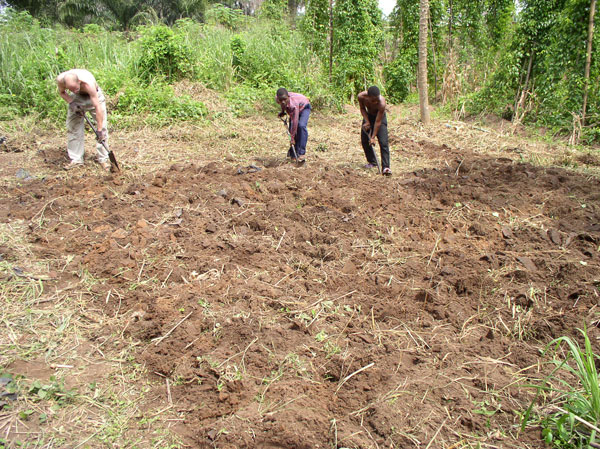“Today I appoint you over nations and kingdoms to uproot and tear down,
to destroy and overthrow, to build and to plant” (Jeremiah 1:10).
A couple of weeks ago, Amy, Isaac, and I planted our
garden. While neither of us is a natural
“green thumb,” we enjoy working in the garden together. We especially enjoy the fresh squash,
tomatoes, peppers, and cucumbers that we’ll be eating in a few months. But, as we’re quickly learning, fresh
vegetables don’t come without a little sweat.
Tilling, planting, weeding, and watering all must be done routinely in
order for the vegetables to grow.
One thing that has struck me about gardening is how
destructive it is. In order to plant
seeds, one must first take a piece of ground and uproot it – tearing away the
sod, turning up the dirt, digging out the weeds. It is this act of uprooting and tearing up
the ground that is the most difficult work of gardening. Yet, laborious and undesirable as such work
may be, it is worth it to create space for fresh produce to grow.
When Jeremiah was called to be a prophet, God told him that
his work would be like planting a garden.
“Today I appoint you over nations and kingdoms to uproot and tear down, to
destroy and overthrow, to build and to plant.” Surely Jeremiah must have
been excited about that last part. As
God’s prophet, Jeremiah will have the opportunity to plant the seed of God’s
hope-filled future. It is Jeremiah who
will get to deliver one of the most inspiring messages in the Bible: “ ‘For I
know the plans I have for you,’ declares the Lord, ‘plans to prosper you and
not harm you, plans to give you hope and a future’” (Jeremiah 29:11).
But before Jeremiah could plant that hope-filled seed, he
would need to do the difficult work of uprooting, tearing down, destroying, and
overthrowing. In Jeremiah’s day, the
people of Israel had wandered far away from God. They worshiped idols, neglected the poor,
and disregarded God’s Word. In such a
condition, the people of Israel were not fertile soil for God’s Kingdom. If the seeds of hope were to be planted and
take root in Israel, then the ground first needed to be prepared. Things needed to changed. Idolatry needed to be uprooted. Injustice needed to be destroyed. Corrupt leaders needed to be overthrown. Someone needed to sound the alarm that
everything is not okay. Jeremiah is
called to do just that.
Take some time this week to consider your own life. What is God is calling you to uproot in your
life to make space for the seeds of God’s peace to be planted within you? What bad habits do you need to tear
down? What sin do you need to
overthrow? What barriers do you need to
destroy in order to live more fully into God’s purpose for your life? Such questions can be difficult to ask, and even
more difficult to answer, but they are an important step in creating fertile
ground in our hearts for the hope of God to be planted and to take root.

I never realized how tough some of these challenges are. From a single path that you've trodden your whole life....to a completely new one is difficult to say the least. The questions you pose, Pastor Tom..aren't ones I've asked myself too many times concerning the subject of living the way God intended me to. Uprooting a lifetime of patterns....what a conquest. I couldn't do it alone. I'm beyond blessed that God has led me to your crook and His church.
ReplyDelete-Jeff Vasalech
Jeff,
DeleteIt's an honor to share the journey with you. None of us can do this alone. That's why we need Jesus. It also why Jesus called us to gather together as a community (church) because we also need each other.